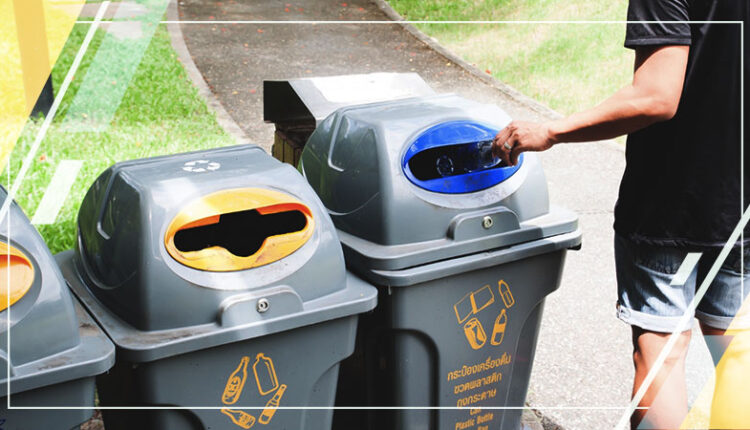What is Smart Waste Collection Technology and Why is it Important?
Long gone are the days when people dump their wastes in the nearby dumpster. This type of practice not only harms the environment but also leads to air pollution resulting in the easy spread of diseases. By 2050, global waste is projected to soar to 4 billion tons, doubling its 2016 level. This rapid increase is fueled by expanding urban populations and the proliferation of consumer culture, trends showing no signs of slowing down. To alleviate the strain on the environment and waste collection services caused by this surge, communities worldwide are embracing smart waste collection technology.
What is Smart Waste Collection Technology?
Smart waste collection technology utilizes advanced systems and applications, such as the Internet of Things (IoT), to enhance the efficiency, cost-effectiveness, and eco-friendliness of waste management processes. By integrating various innovative technologies, it aims to optimize waste collection, decrease operational costs, and promote sustainability.
These technologies include sensors placed in waste receptacles to measure fill levels and alert collection services when bins require emptying. Historical data from these sensors can be analyzed to identify fill patterns, optimize collection routes and schedules, and minimize fuel consumption and resource usage. Additionally, GPS tracking can be used to monitor waste collection vehicle locations and optimize their routes.
Inefficiency of Traditional Waste Management
Around 80% of waste collections occur at inappropriate times, leading to a myriad of issues such as overflowing bins, unsanitary conditions, citizen complaints, illegal dumping, and increased cleaning and collection expenses. Both late and early waste collections contribute to further problems, including unnecessary carbon emissions, heightened traffic congestion, and elevated operating costs.
Traditionally, municipalities and waste management companies followed fixed collection routes and schedules, necessitating the emptying of every waste container regardless of its fill level. This approach results in excessive labor and fuel expenses, ultimately burdening residents with higher costs. Moreover, this method is unsustainable, as it increases carbon emissions from unnecessary vehicle operations, exacerbating environmental concerns.
Benefits of Smart Waste Collection Technology
Smart waste collection technology offers a multitude of benefits that transform waste management processes:
- Efficiency: Utilizing sensors and IoT technology, smart waste collection systems monitor fill levels in real-time. This data optimizes collection routes, reducing pickups of half-full bins and cutting fuel consumption and operational costs.
- Cost-effectiveness: By streamlining trash pickups with accurate fill-level data, collection schedules are optimized, eliminating wasted time and resources on inefficient routes.
- Environmental friendliness: Optimized collection routes and reduced pickups contribute to lower carbon emissions and fuel consumption, fostering a more sustainable waste management process and a smaller environmental footprint.
- Improved service quality: Proactive monitoring and maintenance of waste bins prevent overflow, rodent infestations, and odors, ensuring cleaner and more hygienic public spaces.
- Data-driven decision making: Real-time data on waste generation empowers municipalities to make informed decisions, optimizing operations, resource allocation, and future planning.
- Enhanced safety: Safety sensors in smart waste bins detect hands or objects, preventing injuries during the compaction process.
- Smart city integration: Smart waste collection aligns with smart city initiatives, improving sustainability, reducing congestion, and enhancing residents’ quality of life.
In summary, smart waste collection technology offers a transformative approach to waste management, providing efficiency, cost-effectiveness, environmental sustainability, and improved service quality. Leveraging technology and data optimization paves the way for a cleaner and more sustainable future.
How Does Smart Waste Collection Technology Work?
Smart waste collection technology optimizes waste management processes through various innovative technologies:
- Smart Bin Sensors: Equipped with sensors, waste bins measure fill levels in real-time using ultrasonic, infrared, or weight-based measurements.
- Data Collection and Analysis: Sensor data is transmitted to a central management system via wireless or cellular networks for analysis.
- Route Optimization: Real-time data on fill levels and historical usage patterns enable the optimization of waste collection routes, reducing unnecessary pickups and minimizing fuel consumption and operational costs.
- Real-time Monitoring and Alerts: Waste management personnel receive alerts when bins reach capacity, prompting timely emptying.
- GPS Tracking: Waste collection vehicles utilize GPS tracking systems for efficient route planning, minimizing travel time, and optimizing collection routes.
- Data-driven Decision Making: Analyzed data informs decisions on collection schedules, bin placement, and process improvements.
- Integration with Smart City Initiatives: Smart waste collection aligns with broader smart city initiatives, enhancing coordination between waste management systems and other urban services for efficient resource allocation and city management.
By leveraging technology and real-time data, smart waste collection aims to improve efficiency, reduce costs, minimize environmental impact, and enhance waste management effectiveness.
Why Is Smart Waste Management Important?
Despite the majority of waste being recyclable, only a fraction gets recycled, leading to vast amounts ending up in landfills and waterways. With humans producing over 2 billion tons of waste annually, traditional waste management systems struggle to keep up with growing populations.
Smart waste management technologies offer a solution by enhancing efficiency, reducing collection costs, and diverting more trash from landfills. As the world’s trash dilemma persists, adopting these innovations becomes crucial to mitigate environmental impact and ensure sustainable waste management practices for the future.
Final Takeaway
Smart waste collection technology offers a transformative solution to optimize waste management processes. By leveraging sensors, real-time data collection, and analysis, it enables more efficient waste collection routes, reduces operational costs, and minimizes environmental impact. This technology empowers municipalities, waste management companies, and cities to make data-driven decisions, improve service quality, and create more sustainable waste management practices. With its ability to enhance efficiency, reduce costs, and promote environmental sustainability, smart waste collection technology paves the way for a cleaner and more efficient waste management system for a brighter future.


